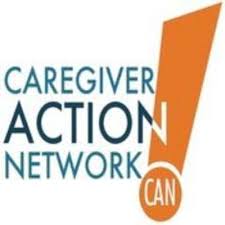Psoriatic Arthritis Doesn’t Stop Her

Melanie Lech was a senior in college when she attended a belly dancing class that left her significantly more sore than usual. It was the beginning of a painful journey through the medical maze known as psoriatic arthritis. She was only 21 years old.
The Huntersville, North Carolina, native said, “The next day it felt like my arm was falling off. It actually felt like my shoulder was sliding out of the joint. At first I thought I was just really out of shape and I went too hard in the dance class, but then it [the pain] didn’t go away.”
The pain worsened to the point that Melanie finally made an appointment with her university’s health services department.
“She [the doctor] said it was just a strained muscle and not a big deal,” Melanie recalled. “But I didn’t think that was it. My fingers started to swell, and my wrists and toes and knees and my whole body hurt. I would lie in my bed immobilized, just crying because it hurt to even move. I felt like I was dying!
“Because my school was in the mountains, I had to climb a lot of hills going to and from class. It felt like I was walking on spikes sometimes.”
After seeing several doctors, many dismissive, Melanie was finally referred to a rheumatologist.
“She asked me a few questions right at the beginning,” she said. “Have you ever had an AMA [autoimmune] test? Do you have psoriasis? Where does it hurt? At what time of the day does it hurt most?”
The doctor’s diagnosis was psoriatic arthritis (PA), a chronic inflammatory disease that attacks joints and skin, most often affecting people between 30 and 50. Symptoms range from joint pain, stiffness, swelling and scaly skin patches, called psoriasis.
“One of the other doctors who misdiagnosed me gave me a wrist brace, and my rheumatologist told me that was the worst thing for arthritis!” Melanie said. “It was actually shocking how quickly my rheumatologist figured out what was going on with me compared to other doctors.”
The first treatment consisted of a variety of oral medications, but not only did the pain persist, the side effects were nearly as bad as the RA itself.
“I had a brain fog so bad sometimes it felt like I was underwater. I had severe dizziness and a loss of balance, like I would be in the grocery store and I would just fall backwards,” she said. “I also had chest pain—tightness in my chest and pressure like there was a weight on it, and it was hard to breathe. I felt like I was going to have a heart attack.
“My primary care doctor acted like I was being dramatic and said it was acid reflux, but it turned to be an allergic reaction. Another oral medicine caused constant severe tinnitus [a ringing in the ear] that never went away, even now, even though I stopped taking it over a year ago.”
After a supervised in-home demonstration, she went through a series of bi-weekly self-injected immunosuppressant drug treatments. The side effects weren’t as severe, but she became very sick between each shot and had trouble staying on schedule as a result. Today, Melanie admits that she has stopped all treatment for her PA.
“I stopped taking the injections because the side effects terrified me and honestly, I hate needles. You can get drug-induced lupus and cancers, and I’m just hoping that something better will come along soon. I know I’m a pretty poor role model for PA patients because I’m really irresponsible with my medications. I’m very fortunate that my pain and symptoms have reduced dramatically, other than inflammation in my wrists, hands, and occasionally feet.
“My boyfriend, Alex Bradford Cobb, is the scientific type and he’s done a lot of research on vitamins and supplements that can help me, like curcumin phytosome meriva, fish oil, vitamin D, and methylated magnesium. Between those, exercising, and significantly reducing my stress, I think I’ve actually gotten a lot better. Last year, my whole body would hurt and it was difficult to even grip a pencil. Now, even though I need to get back on some kind of treatment, it’s definitely something I can deal with.”
Now 24, Melanie’s condition has improved to the point that she works as a self-employed videographer and photographer at her company, Mean Bean Productions. It was her love for videography that led her to tell the story in the form of a short film that took home fifth place in the Invisible Disabilities Association’s video contest.
Editors note: Allsup helps individuals living with psoriatic arthritis and other disabilities apply for SSDI and return to work.
This profile is part of the series, #IAmInvisibleNoMore, to feature the top vote-getting videos that were part of the video contest earlier this year. The Invisible Disabilities Association and Allsup encouraged individuals to share their invisible disabilities stories. Click here for details.
Allsup
Related Articles

Uncategorized
Helping Family Caregivers With What They Need to Know

Uncategorized
Understanding MS and Disability Benefits

Uncategorized
BIA-MO Gets Real about Brain Injury Awareness

